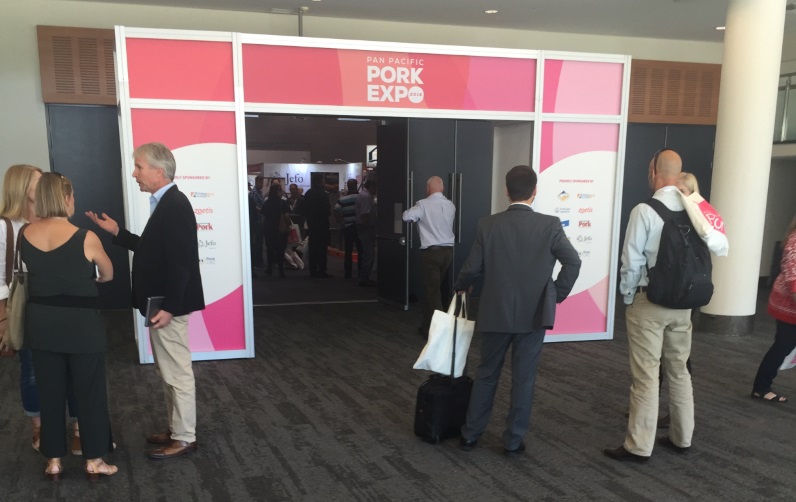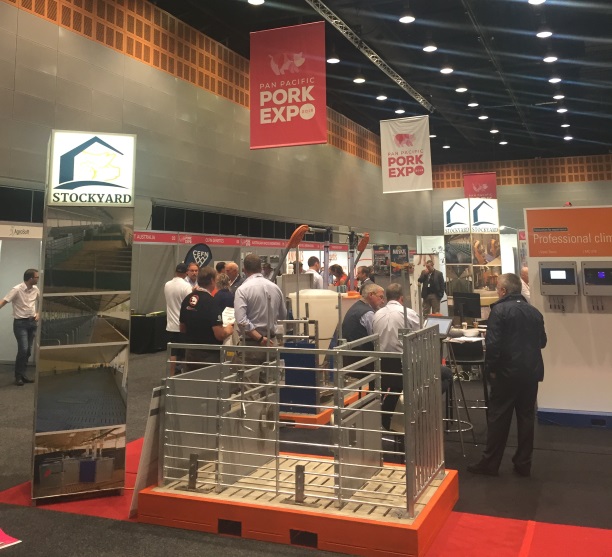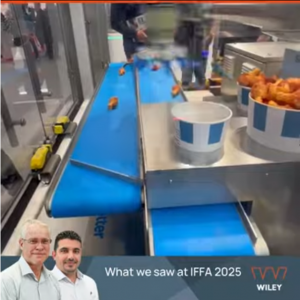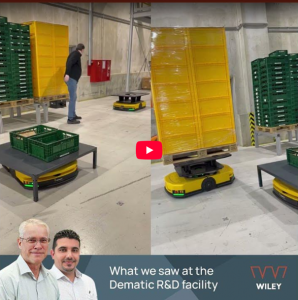 Beau Taylor, one of Wiley’s Senior Process Engineers, took time out this week to visit the 2016 Pan Pacific Pork Expo.
Beau Taylor, one of Wiley’s Senior Process Engineers, took time out this week to visit the 2016 Pan Pacific Pork Expo.
Beau has captured insights relevant to all stakeholders in the Pork Industry including; hints of what the future of the industry might look like; how data might be used to drive increased value for pork products; and, how the industry might drive increased consumer interest and additional planned pork product purchases on retail shelves.
The expo included a presentation from the renowned futurist, Craig Rispin, who immediately challenged everyone’s thinking. He posed questions like:
- Who might be the Uber of the Pork industry and when will we see them?
- Are you willing to give up a little privacy to capitalise on technology?
- If you had access to sensor and scanning technologies, would you be willing to share your data with others?

These are all great questions focused on the future of the Pork Industry. It was a great lead in to one of the hot topics at the Expo. Data.
The Pork industry, like many food industries, are on the cusp of capturing a new wave of opportunities through data. For example, one of the presenters, Dr Jude Capper, pointed out that consumer demand for data is ever increasing and shared that:
- 65% of people want to know where their food comes from
- 37% of consumers believe that the food industry is not transparent
- Only 30% of consumers have the information that they require about their food
To meet the consumer’s need for data and build higher levels of trust and value, the industry needs to connect all of the information consumers are interested in and make it visible.
For example, the industry would do well to leverage the inherent trust society places in farmers. Dr Heather Bray, another speaker, highlights that consumers give “social licence” to farmers based on the perception that farmers are doing the “right” thing. The perceived value of pork products could increase by providing the consumer with transparency through to the farming operation. In doing this, the industry could tell a positive story for the consumer to connect with, all through data.
Another insight coming from the Expo is that consumers do not always know how to use, prepare or cook pork. Rob Cumine, Agriculture Manager at Coles, highlights that pork is the third most unplanned purchase on the retailers’ shelves and is often seen just as a Christmas or Easter “family” meal. If you connect this with the previous insights around data, then benefits could be captured by connecting pork products with other data sources. For example, connecting different pork products with recipe databases and complimentary product databases that the consumer is engaged with might drive additional planned pork product purchases.
The 2016 Pan Pacific Pork Expo highlights the need for the Pork industry to look to the future and capture increased value and increased demand for pork products through data. In addition, a data led approach to operations within the Pork industry can drive new levels of production efficiency and optimisation.
For further details on these and more insights coming from the 2016 Pan Pacific Pork Expo, please connect with Beau Taylor, or if you would like to learn more about capturing value through data, connect with Brett Wiskar or any of the team at Wiley.


